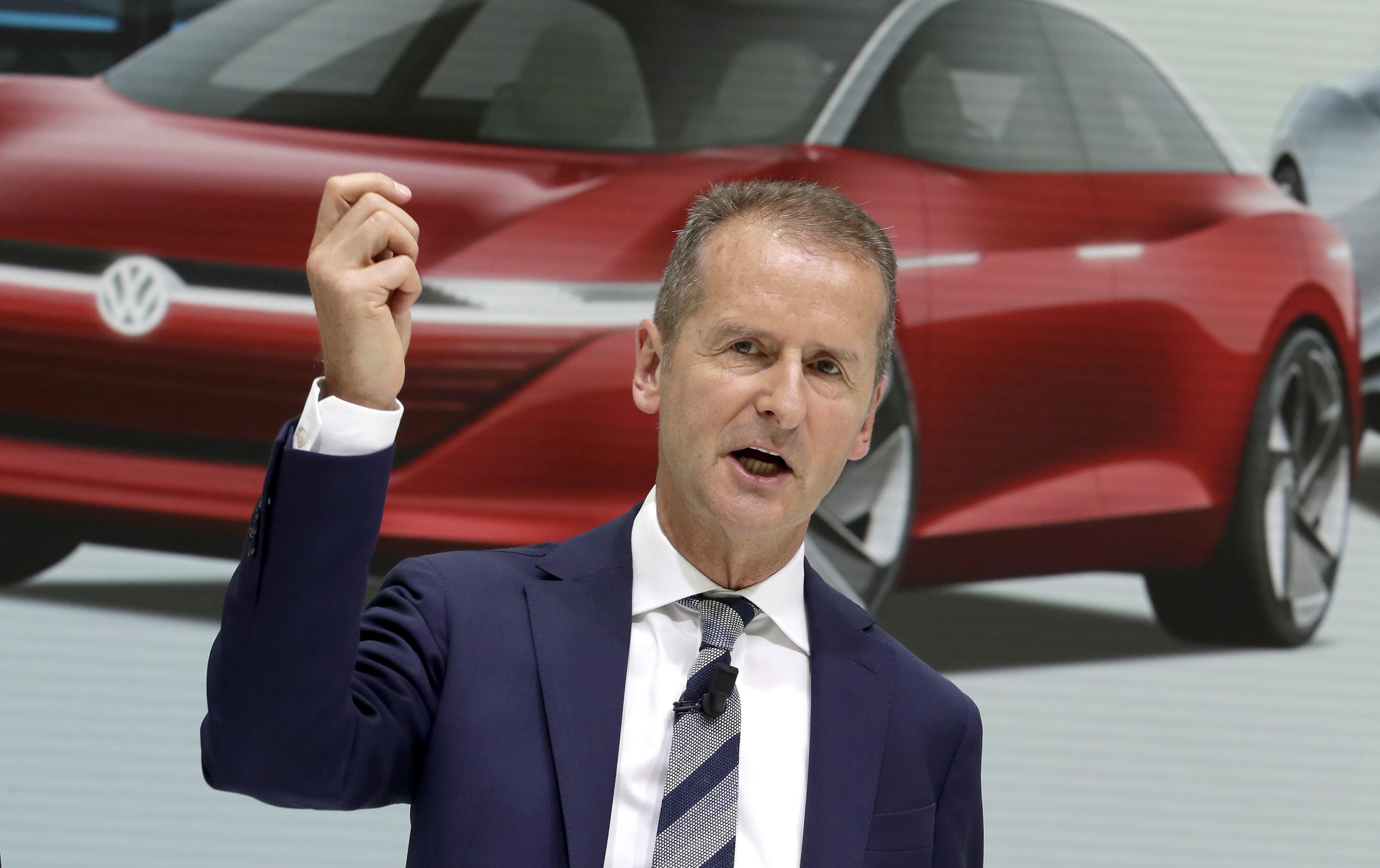The business case and the need to have a plant ready to go is now more important than it already was.
The tie-up between Volkswagen and Ford Motor Co. over battery-powered and autonomous cars makes a stronger case for VW's planned Chattanooga electric vehicle plant, an analyst says.
"The business case and the need to have a plant ready to go is now more important than it already was," said Karl Brauer, executive publisher of Kelley Blue Book.
On Friday, the two automakers unveiled plans to cooperate related to the development of electric and autonomous vehicles.
Volkswagen is to break ground later this year on the new $800 million electric vehicle production facility in Chattanooga. The company will build a battery-powered SUV starting in 2022 at the new plant that will go up adjacent to its existing factory that builds the Passat sedan and Atlas SUV.
The new plant will create 1,000 more jobs to go with the 3,800 already working at the Enterprise South industrial park, according to VW.
 In this Aug. 1, 2018 file photo Herbert Diess, CEO of the Volkswagen stock company, addresses the media during a press conference in Wolfsburg, Germany. A person briefed on the matter says Volkswagen will invest $2.6 billion in a Pittsburgh autonomous vehicle company that s mostly owned by Ford. The number is part of a broader partnership on electric and self-driving vehicles that Ford and the German automaker will announce Friday, July 12, 2019 in New York.
In this Aug. 1, 2018 file photo Herbert Diess, CEO of the Volkswagen stock company, addresses the media during a press conference in Wolfsburg, Germany. A person briefed on the matter says Volkswagen will invest $2.6 billion in a Pittsburgh autonomous vehicle company that s mostly owned by Ford. The number is part of a broader partnership on electric and self-driving vehicles that Ford and the German automaker will announce Friday, July 12, 2019 in New York. Brauer said that as VW and Ford share costs over developing electric and autonomous vehicles, it's going to make it easier for the car companies to reach profitability in the segments.
He said he foresees the two automakers eventually sharing vehicle parts and production. Brauer said he can see commonalities around vehicle structures for both companies.
The tie-up between the companies is "a good representation" of where the EV and autonomous vehicle markets are headed, he said.
"It's going to be expensive and probably a longer time horizon" for autonomous cars, Brauer said. "It's going to need more money and resources. Similarly, it's true with electric vehicles."
He said the market for EVs currently is small, though he thinks it will "eventually get there."
Jessica Caldwell, executive director of industry analysis for Edmunds, said EVs are key to VW globally as it seeks to put the diesel emission scandal behind the automaker.
She said that producing the planned all-electric SUV in Chattanooga is "important not just from a reputation perspective. From a sentiment perspective, employees and customers will get a positive sentiment from the launch of this vehicle."
She also noted the small percent of the market EVs make up, but the battery-powered vehicles should deliver "positive momentum" for VW.
Volkswagen spokesman Mark Clothier said that while the VW-Ford announcement Friday didn't directly impact Chattanooga, the fact that Ford chose to access the VW electric vehicle platform, called MEB, is proof that it's on its way to establishing itself as a leading player.
"The more vehicles that are to be produced on the MEB platform, the cheaper it gets," he said. "VW and Ford continue to look at other areas on which we might collaborate, including additional vehicles, but have nothing else to add today."
Chattanooga's EV plant will hold what the automaker terms "the backbone of the technology" - a battery system located beneath the cars known as the Modular Electric Toolkit (MEB) on which all of the brand's electric cars will sit.
"Everything is built on top of that" battery system, said Matthew Renna, vice president of the e-mobility product line in North America for Volkswagen, at the Detroit auto show in January when VW revealed its plans for the new facility in Chattanooga.
According to Volkswagen, it has secured a group of suppliers for battery cells in all of the world's major regions as it gears up EV production. SK Innovation, LG Chem, Samsung and CATL will supply batteries for its growing electric vehicle fleet.
Contact Mike Pare at mpare@timesfreepress.com or 423-757-6318. Follow him on Twitter @MikePareTFP.
